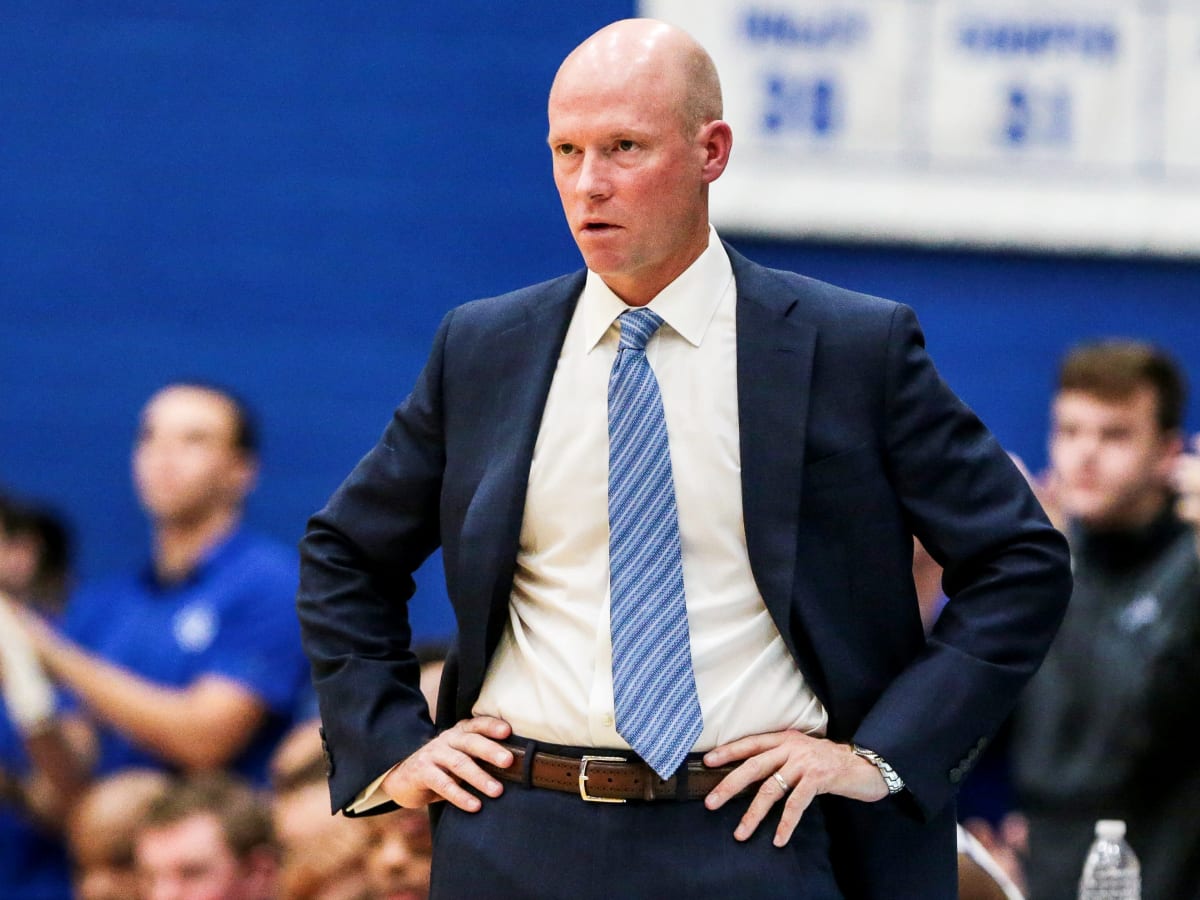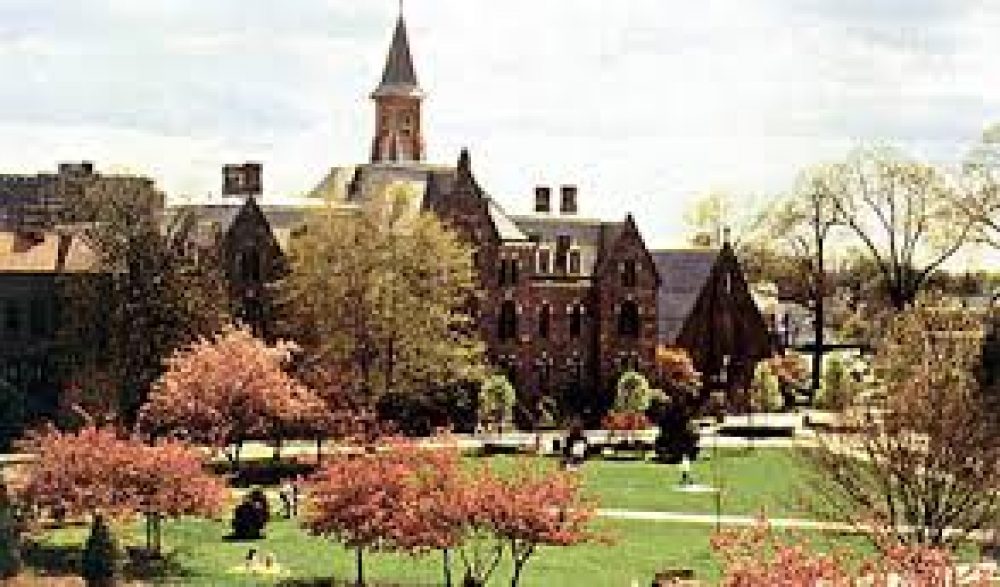Seton Hall
Paying Homage to Coach Kevin Willard's Seton Hall Career
Date: March 27, 2022By: Justin Nicosia

Vincent Carchietta/USA TODAY Sports
Note: All recruiting rankings are according to 247Sports.com
Kevin Willard has parted ways with Seton Hall and will join Maryland as the 10th head coach in program history after signing a five-year, $22 million contract. He will leave Seton Hall as the program’s most influential coach since P.J. Carlesimo left in 1994.
When Willard took the Seton Hall job in 2010 as a relatively unproven 35-year-old with a sub-.500 head coaching record during his time at Iona, the program was in shambles. Despite coming off a 19-13 season and NIT appearance during the 2009-10 season, the program was towards the bottom of the Big East.
WELCOME WILLARD!
— Maryland Men’s Basketball (@TerrapinHoops) March 21, 2022
The Kevin Willard era starts now!
In the fall, head coach Bobby Gonzalez, who was hired in April 2006 was given a five-year contract extension, but in March, the school decided it was in their best interest to part ways despite having their best season under Gonzalez’s program.
His tenure was littered with technical fouls and subsequent ejections on his part. In the program’s first postseason game in four seasons, forward Herb Pope got ejected for punching a Texas Tech player below the waist, leading to the Pirates’ first round exit in the 2010 NIT.
The program under Gonzalez was difficult. Recruiting became a nightmare for the Pirates. When he was hired, Gonzalez inherited a program consistently ranking in the top-40 of recruiting rankings.
His highest ranked class, the class of 2007 – his first season, for which the recruiting cycle was largely influenced by previous coach Louis Orr – the class ranked 56th nationally. The only other class that ranked in the top 200 during his tenure was in 2010, which ranked 87th nationally.
During Willard’s watch, Seton Hall never had a recruiting class ranked lower than 101st. Three of his classes ranked in the top-50 nationally, and Willard recruited four of the top-six recruits in program history: Angel Delgado, Isaiah Whitehead, Myles Powell, and Brandon Weston.
.
— Seton Hall Men's Basketball (@SetonHallMBB) March 21, 2022
Thank you for everything, Coach.
https://t.co/gavWvN2m8d#HALLin ⚪️ pic.twitter.com/LQiCRuIaBh
Three of those are amongst the four Willard-coached players who have spent time in the NBA. The lone exception? Current freshman forward Weston who, if it weren’t for a pair of lower-body injuries, would have been a key part of the program’s 2021-22 team.
He was also a wizard at working the transfer portal, landing four four-stars and two three-stars through the portal over the last five years. Those players – Quincy McKnight, Ike Obiagu, Tray Jackson, Bryce Aiken, Kadary Richmond, and Jamir Harris – all have been difference makers during their respective times at Seton Hall. Most have also stepped up as true leaders, representing the program with character both on and off the court. That culture change is a complete 180 from where the program was just over a decade ago.
Coach Willard also excelled at player development. Myles Powell and Romaro Gill, recipients of the Big East’s Most Improved Player Award can attest to that. So can Sandro Mamukelashvili, a former three-star recruit ranked 21st in the Big East in that year’s recruiting cycle, who became one of 2021’s three Big East co-Players of the year, and the fourth Willard-coached player to appear in an NBA Game.
Powell was the program’s first All-American since Terry Dehere did it in 1993.
Willard coached some of the nation’s best defenses. Excluding three outlier seasons between 2013 and 2015, his defenses averaged 36th in KenPom’s adjusted defensive efficiency. Half of his 12 seasons saw the top-35 defenses in that category, peaking with two top-10 seasons. He also coached two Big East Defensive Players of the Year: Fuquan Edwin in 2014 and Gill in 2020.
When Willard took over in 2010, Seton Hall had not been ranked in the AP Poll since January 2001. During his 12 seasons, the team was consistently receiving votes in the poll, being ranked inside the Top 25 for six total seasons and peaking as high as eighth in the 2019-20 season.
The Pirates had made nine total NCAA Tournaments prior to hiring Willard. Under him, that number rose to 14, and it would have been 15 if the 2020 tournament wasn’t cancelled.
All that said, Willard wasn’t perfect. He went just 1-5 in NCAA Tournament games, failing to reach the second weekend in all five attempts. To his credit, the 2020 team was a potential Final Four team, although who knows how far the team would have really gone.
Willard’s iso-oriented style of offense was also not always well-received by the fans. But to his credit, Willard usually recruited to that offensive scheme. Injuries aside, one of Whitehead, Powell, or eventually Aiken have been the expected lead guards on the team since 2015. Those are guys who excel in that system.
The Pirates looked weak offensively for the first three games after Aiken suffered a season-ending concussion in January, averaging just 64.0 points-per-game on 32.8% shooting. At that point, Willard decided Harris needed to take some of the burden of running point guard off of Richmond’s shoulders.
He instituted eight new plays and had the two split the point guard time. In the 10 remaining regular season games, the Pirates averaged 70.1 points-per-game, shooting the ball 42.9% from the field and 37.3% from three. For reference, even with Aiken, who was shooting 42.9% from three during conference play, the team shot just 31.5% from distance as a whole before his injury.
The offense may have not looked great at times, even after Willard made his adjustments, and especially during the Big East and eventually NCAA Tournaments. But it wasn’t for the faint of heart.
Willard may rub fans the wrong way with his final press conference, when he didn’t deny the rumors that he would be heading to Maryland, and he gave off the impression that he wasn’t focused on the Pirates’ game against TCU.
Say what you will about the way he left, but he could not have paved the way for a better coach than Shaheen Holloway. Willard endorsed Holloway in the press conference, which will carry a lot of weight with Seton Hall administrators if and when they decide to hire Holloway in the coming weeks.
As if his Seton Hall connection wasn’t strong enough with his playing career, when Willard was hired at Iona in 2007, he brought Holloway on as an assistant. Then, when Willard moved to Seton Hall, Holloway joined him.
Saint Peter's becomes the first team from New Jersey to reach the Sweet 16 since 2000.
— CBS Sports CBB (@CBSSportsCBB) March 20, 2022
The last team was Seton Hall...their starting point guard was Saint Peter's head coach Shaheen Holloway. pic.twitter.com/Cwl8V8xzfC
Holloway was a part of Willard’s staff until 2018, doubling as the team’s lead recruiter. While Willard was the head coach when Whitehead, Delgado, Powell, and Cale were all recruited, Holloway did some of the work to sell the deal.
Born and raised in Queens, N.Y., Holloway is a city kid at heart. He can parlay his NYC roots with the recruiting skills that helped land some of Seton Hall’s best ever recruits to bring in some of the best classes in school history if he gets offered and takes the job.
He carries himself with the confidence of a true New Yorker, saying, “I got guys from New Jersey and New York City. “You think we’re scared of anything? You think we’re worried about guys trying to muscle us and tough us out? We do that. That’s who we are,” after Saint Peter’s victories over Kentucky and Murray State.
"Did you ever get nervous???"
— CBS Sports (@CBSSports) March 18, 2022
"Nah — for what? It's basketball." @JamieErdahl caught up with one cool customer in Saint Peter's coach Shaheen Holloway pic.twitter.com/HzDT2NkMaL
Holloway expects the best from his players. When interviewed during the under-eight timeout of the first half of Saturday’s bout with Murray State, Holloway said “we’re playing like crap”. Jamie Erdahl, who worked sideline for the game, reminded him that St. Peter’s was winning, to which he replied, “still, it’s unacceptable.”
Saint Peter’s HC Shaheen Holloway is my kinda coach. #MarchMadness pic.twitter.com/vjNJnqSPTv
— Rahl Reviews (@RahlReviews) March 20, 2022
Putting his confidence and the expectations he has for his players aside, Holloway is a fantastic in-game manager. Down six with less than five minutes to go against two-seed Kentucky, Holloway schemed a zone defense which allowed St. Peter’s to stay in the game long enough to force, and eventually win, in overtime. The confidence he has in himself, and his team encouraged them to not waver in the face of pressure and become the third ever 15-seed to advance to the Sweet 16.
St. Peters coach Shaheen Holloway on his team facing the pressure of the NCAA Tournament: "This isn't pressure. Pressure is when you're working to feed your kid and you can't feed your kid. ... This is basketball."
— Zach Shaw (@_ZachShaw) March 18, 2022
If Holloway becomes the next head coach of Seton Hall men’s basketball, which all signs point to happening, he will be the perfect replacement for Willard, who deserves all the credit in the world for making happen.
It would be quite the fitting end to the illustrious Seton Hall coaching career of Willard, who has the second most wins in program history with 225.
Coach Willard: Thank you for everything, and if Coach Holloway becomes the next coach of Seton Hall men’s basketball, thank you for making it happen. As the Seton Hall student section said numerous times this season, “we love Willard!”
Justin Nicosia can be reached at justin.nicosia@student.shu.edu.
Posted in: Men's Basketball, Sports, WSOU




